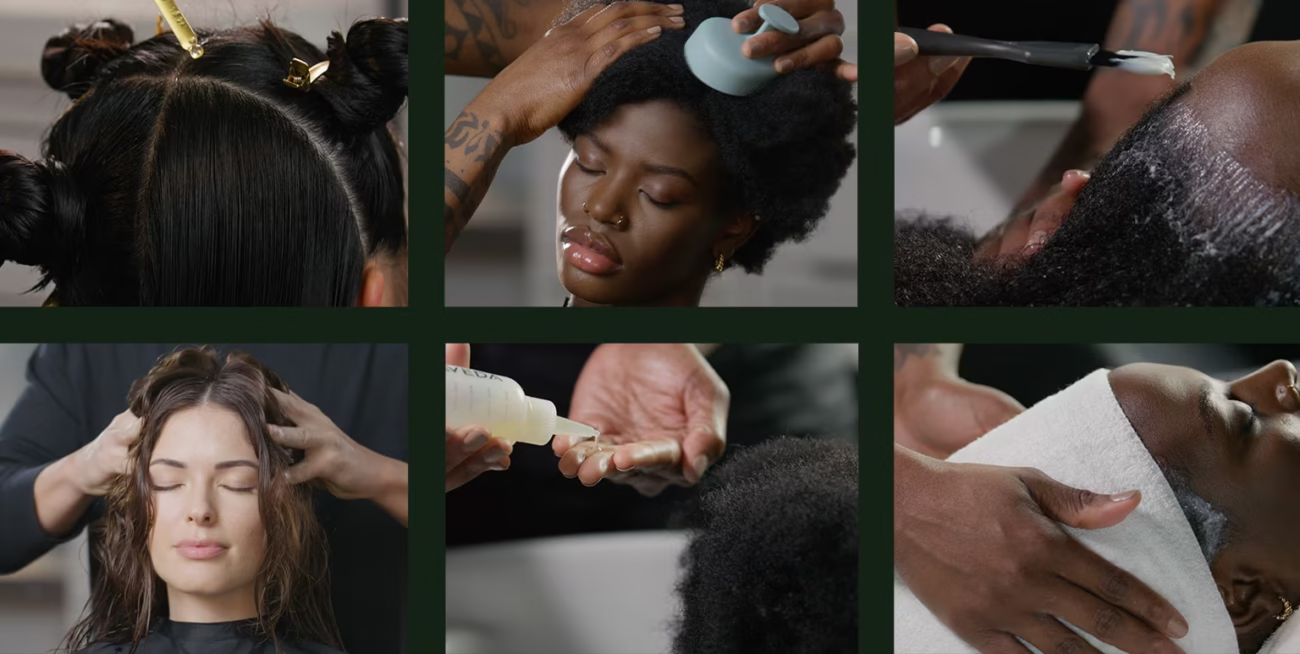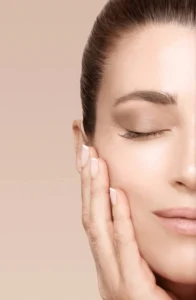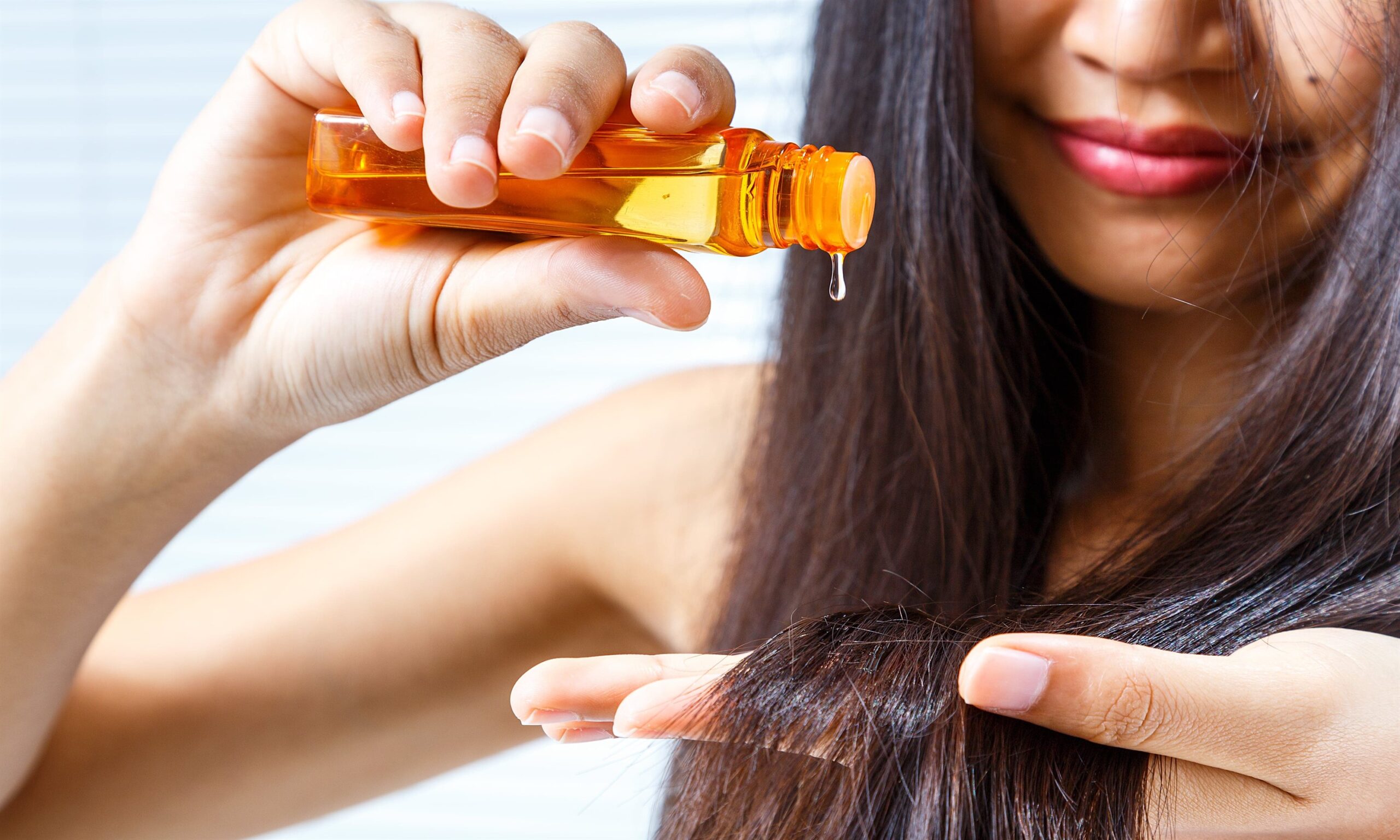Dry hair is a common concern faced by individuals of all ages. Characterized by a lack of moisture and natural oils, dry hair often appears dull, brittle, and prone to breakage. Addressing this issue is essential not only for aesthetic purposes but also to maintain overall hair health. In this article, we will explore the causes of dry hair and offer professional solutions to restore hydration and vitality.
Understanding Dry Hair
Dry hair occurs when the hair lacks sufficient moisture, either due to an impaired scalp barrier or external factors. Key causes include:
1. Environmental Factors
- Exposure to Sunlight: Prolonged exposure to UV rays damages the hair cuticle.
- Weather Conditions: Extreme cold, wind, or dry climates can strip hair of moisture.
2. Hair Care Practices
- Over-Washing: Frequent shampooing removes natural oils.
- Use of Harsh Products: Shampoos and treatments containing sulfates or alcohol can dehydrate the hair.
- Heat Styling: Excessive use of blow dryers, straighteners, and curling irons weakens hair strands.
3. Health and Lifestyle Factors
- Poor Nutrition: Inadequate intake of vitamins, minerals, and healthy fats can impact hair health.
- Dehydration: Insufficient water intake leads to dryness in skin and hair.
- Medical Conditions: Hypothyroidism, hormonal imbalances, or scalp conditions like eczema can contribute to dry hair.

Effective Solutions for Dry Hair
1. Hydrating Hair Care Routine
Implementing a routine that emphasizes hydration is crucial for restoring moisture:
- Moisturizing Shampoos and Conditioners: Opt for products labeled as “hydrating” or “nourishing” that contain ingredients like glycerin, aloe vera, and hyaluronic acid.
- Deep Conditioning Treatments: Use deep conditioners or hair masks once or twice a week. Ingredients such as shea butter, argan oil, and keratin help repair and strengthen hair.
- Leave-In Conditioners: Apply leave-in treatments to lock in moisture and provide a protective barrier against environmental aggressors.
2. Natural Remedies
For those seeking holistic solutions, natural ingredients can significantly improve hair health:
- Coconut Oil: Renowned for its deep-penetrating properties, coconut oil nourishes and repairs damaged hair.
- Olive Oil: Acts as a natural emollient, smoothing the hair cuticle and adding shine.
- Avocado Masks: Rich in healthy fats and vitamins, avocado masks hydrate and strengthen hair.
- Honey Rinse: A natural humectant, honey helps retain moisture in the hair.
3. Protective Styling and Techniques
- Avoid Heat Styling: Reduce the frequency of blow-drying, straightening, or curling. Use heat protectant sprays when styling is necessary.
- Gentle Towel Drying: Replace rough towel drying with a microfiber towel or a soft cotton T-shirt to prevent further damage.
- Detangle Carefully: Use wide-tooth combs or detangling brushes to avoid breakage.
4. Diet and Lifestyle Changes
A healthy body often reflects in healthy hair. Ensure your diet includes:
- Omega-3 Fatty Acids: Found in fish, walnuts, and flaxseeds, these combat dryness and promote scalp health.
- Vitamin E: Present in almonds, sunflower seeds, and spinach, it improves hair elasticity.
- Biotin: Known as vitamin H, biotin-rich foods like eggs and sweet potatoes strengthen hair.
- Hydration: Drink at least 8 glasses of water daily to maintain optimal hydration levels.

5. Professional Treatments
In some cases, professional intervention may be necessary:
- Salon Treatments: Treatments like keratin smoothing, hot oil therapy, or hydration infusions can rejuvenate dry hair.
- Trimming: Regular trims help eliminate split ends, preventing further damage.
- Scalp Treatments: A healthy scalp is the foundation of healthy hair. Professional scalp exfoliation removes buildup, allowing oils to penetrate the hair shaft.
Preventive Measures
To keep dry hair at bay, consider the following:
- Limit Washing: Wash hair 2-3 times a week to allow natural oils to nourish the hair.
- Use Lukewarm Water: Hot water strips oils, while lukewarm water cleanses without causing dryness.
- Choose the Right Products: Avoid sulfates, parabens, and alcohol-based products that dehydrate hair.
- Wear Protective Styles: Use hairstyles that minimize exposure to harsh weather conditions.
- Sleep on Silk: Silk or satin pillowcases reduce friction, preventing breakage and frizz.

Myths About Dry Hair
- More Oil Means More Moisture: While oils can seal in moisture, they do not hydrate hair on their own. Hydration must come from water or water-based products.
- Trimming Makes Hair Grow Faster: Trimming prevents split ends but does not influence hair growth rate, which depends on genetics and overall health.
- Only Certain Hair Types Get Dry: All hair types, from straight to curly, can experience dryness under the right conditions.
When to Seek Professional Help
If your dry hair persists despite at-home remedies, it may indicate an underlying issue. Consult a dermatologist or trichologist if you experience:
- Persistent dryness and breakage
- Scalp irritation or flaking
- Sudden or excessive hair loss
Conclusion
Dry hair is a manageable condition that requires a combination of proper hair care, hydration, and a nourishing diet. By adopting tailored solutions—ranging from moisturizing products to natural remedies and professional treatments—you can restore your hair’s natural luster and vitality. Remember, consistency is key to achieving long-term results. With the right approach, you can enjoy healthier, hydrated locks that radiate confidence and beauty.












